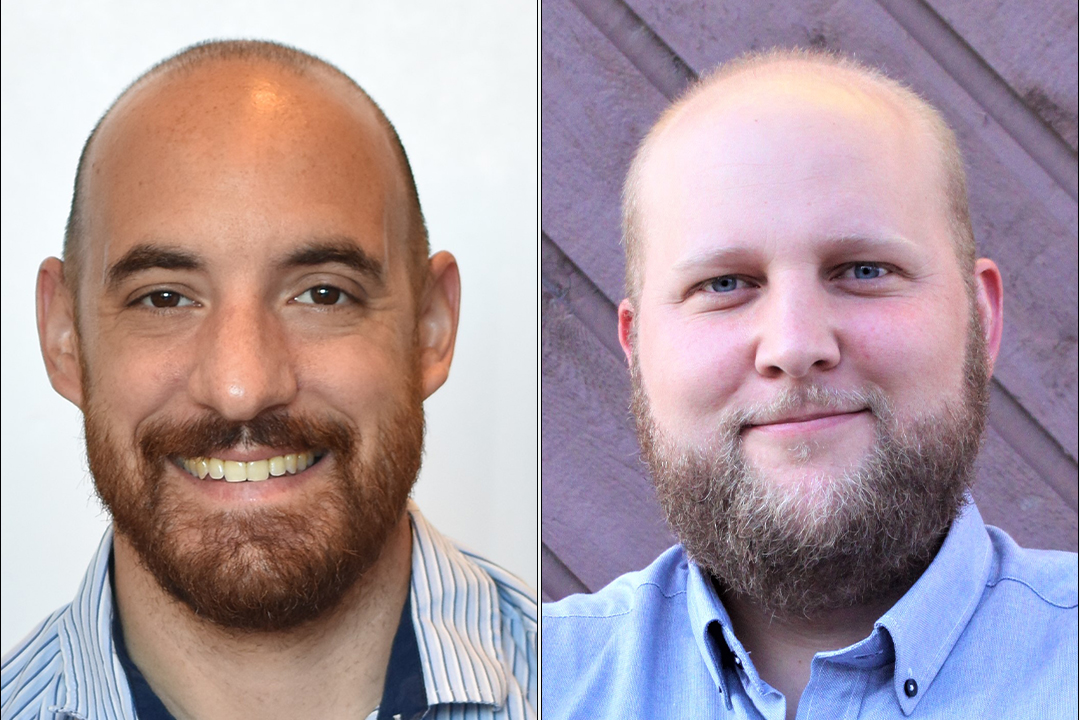
Former WCVM researchers earn Marie Skłodowska-Curie fellowships
Two former Western College of Veterinary Medicine (WCVM) researchers are recipients of Marie Skłodowska-Curie Action (MSCA) Individual Fellowships — a highly competitive research award program in the European Union that benefits researchers in Europe as well as globally.
By Jessica ColbyDrs. Emilio Vélez and Juan Bertucci were both members of Dr. Suraj Unniappan’s Laboratory of Integrative Neuroendocrinology in the WCVM’s Department of Veterinary Biomedical Sciences.
The MSCA Individual Fellowships (IF) provide funding to researchers no matter their age or nationality. In 2020, MSCA awarded 328 million euros (about C$483.7 million) in IF grants to 1,630 researchers. These European fellowships range from one to two years while the global fellowships range from two to three years.
Vélez will receive 197,707 euros (about C$289,116) over two years while Bertucci’s award is 172,932 euros (about C$254,700). The grants allow researchers to obtain skills and improve their careers while working on their research projects. At the same time, the funding also provides them with essential living, mobility and family allowances.
“Both these positions are extremely important milestones for Juan and Emilio in their journey to establish their careers in Europe,” says Unniappan, a WCVM professor and the Centennial Enhancement Chair in Comparative Endocrinology at the University of Saskatchewan (USask).
While at the WCVM, Vélez studied whether two bioactive peptides are involved in mammals’ regulation of pituitary hormones. Bertucci studied comparative endocrinology in fish and how hormones contribute to growth and food intake.
“I have been interested in endocrinology, metabolism and their associated cellular processes since I can remember,” says Vélez. “During my PhD thesis, I studied the endocrine and metabolic control of fish growth, paying special attention to the global regulation of growth hormone and the protein degradation processes in the muscle, as well as the development of that tissue.”
Vélez came to Saskatoon in 2018 through a postdoctoral fellowship with the Saskatchewan Health Research Foundation (SHRF). He later received a postdoctoral fellowship with the Canadian Institutes of Health Research (CIHR).
“During his two-year training at the WCVM, Emilio made significant advancement in our understanding of hormonal regulation of growth hormone secretion in mammals,” says Unniappan. He adds that Vélez’s CIHR fellowship was the only one awarded to a USask researcher in 2020.
Vélez is now a postdoctoral fellow at the National Research Institute for Agriculture, Food and Environment (INRAE) in the Nutrition Metabolism Aquaculture (NuMeA) research unit, which is located in St-Pee-sur-Nivelle, France.
Receiving the fellowship “was a wonderful surprise” for Vélez: “I applied to the MSCA IF because, besides being one of the most prestigious postdoctoral fellowships, it is a giant support for young researchers and provides competitive conditions and opens many doors for future opportunities. In addition, it was an extraordinary opportunity to get funding to extend my actual position in the lab of Dr. Iban Seiliez.”
Vélez is investigating chaperone-mediated autophagy in fish, which is a process of selective degradation of proteins essential for maintenance of cellular homeostasis in fish. This process is essential for intermediary metabolism control in mammals, but so far, no one has studied it in fish.
“The fellowship will make [it] possible to extend my current postdoc position at INRAE,” says Vélez. “In addition to this, the MSCA fellowship provides a great opportunity to acquire new knowledge and skills, get complementary training and improve communication and dissemination skills.”
Bertucci originally came to the WCVM through the Emerging Leaders in the Americas Program (ELAP). This program’s scholarships provide students from post-secondary institutions in Latin America and the Caribbean with exchange opportunities to study or research in a Canadian post-secondary institution. Bertucci completed three separate stints in 2014, 2016 and 2017 as a member of Unniappan’s laboratory.
“[Bertucci’s] time at the WCVM and USask was tremendously successful, and it contributed significantly to his personal and professional success,” says Unniappan. “I am very positive that this fellowship will help him continue that success and set up his own research lab.”
After completing his PhD degree, Bertucci says he became interested in ecotoxicology and extending his knowledge to other models such as marine invertebrates.
Bertucci is working as a postdoctoral fellow with the Marine Pollution Group at the Spanish Institution of Oceanography (IEO) in Pontevedra, Spain. Supervised by Dr. Juan Bellas, Bertucci is studying the combined effect of microplastics, temperature and water pH and how they may affect the growth of sea urchin larvae, within a context of climate change.
Bertucci says he applied for the MSCA award because the fellowship would help to advance his scientific career. When he found out about his achievement, Bertucci says he “felt happy and really grateful with all the people that helped and supported” him.
“First of all, the fellowship will provide me with funds and tools per [for] two years to carry out the proposed research,” says Bertucci of how the fellowship will help him. “Second, it will open opportunities to interact with national and international industries, such as AIMPLAS and Shell, expanding my peer network. And third, it will help me to present the results to specialized and non-specialized audiences.”
Unniappan says these fellowships allowed Bertucci and Vélez to return to Europe and supply them with the needed funding to continue their research.
“The profile of WCVM and USask is positively affected by two of the most recent alumni receiving this very competitive and prestigious fellowship,” says Unniappan.
Jessica Colby of Montmartre, Sask., is a fourth-year student in the University of Regina’s School of Journalism. She is working as a research communications intern at the Western College of Veterinary Medicine (WCVM) for summer 2021.
